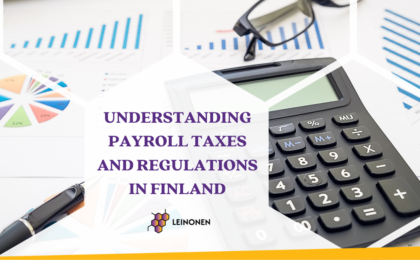If you have a foreign-owned company and plan to begin operating in Finland, getting informed on Finnish employment laws will be vital for the continuing success of your business.
Like many other EU countries, Finland enjoys a range of religious and nationally significant public holidays each year, and with these holidays come some key responsibilities and considerations for employers.
List of Public Holidays in Finland (With 2024 Dates)
- 1st January: New Year’s Day
- 6th January: Epiphany
- 29th March: Good Friday
- 31st March: Easter Sunday
- 1st April: Easter Monday
- 1st May: May Day
- 9th May: Ascension Day
- 19th May: Whit Sunday
- 21st June: Midsummer’s Eve
- 22nd June: Midsummer Day
- 2nd November: All Saints’ Day
- 6th December: Independence Day
- 24th December: Christmas Eve
- 25th December: Christmas Day
- 26th December: 2nd Day of Christmas
Do Employees Have any Legal Entitlements on Public Holidays in Finland?
Although employers are not obliged to give public holidays as days off by law in Finland, most do. Because of this general understanding, employees should be given the day off on a public holiday unless specified in the collective bargain agreement.
For salaried employees, public holidays in Finland are paid days off. For workers on an hourly wage, they are unpaid days off. In cases where an employee does work on a public holiday, they are entitled to double their usual wage (Sunday compensation).
Are any Specific Public Holidays Subject to Additional Regulations?
- Independence Day is the only public holiday in Finland that is a day off by law. On this day, employees paid an hourly wage also get a paid day off.
- In most collective bargain agreements, Midsummer’s Eve is recognised as a public holiday. This means it is usually given as a paid day off by employers, despite not being an official public holiday according to Finnish legislation.
How is Holiday pay Calculated in Finland?
In addition to public holidays, employees in Finland are entitled to annual leave as defined in the Annual Holidays Act. Holiday pay is calculated in one of three ways based on how an employee is paid – these are:
- Based on weekly or monthly pay. This method is used for employees paid a set weekly or monthly wage. Using this method, employees are simply entitled to their usual weekly or monthly pay for the time they are on holiday.
- Based on average daily pay. This is used for employees paid by the hour or on a performance-based basis (e.g., commission), who work at least 14 days each month. In this method, the employee’s average daily pay is calculated by dividing their total pay during the holiday credit year by the number of days worked in the same period. Average daily pay is then simply multiplied by the multiplier corresponding to the number of days they will be on holiday.
- Percentage-based. This method of calculating holiday pay is typically used for employees whose contract states they work a minimum of 35 hours either every month, or in certain months. Holiday pay is calculated as a percentage of total pay received during the holiday credit year.
In all cases, pay for emergency work and agreed overtime are not taken into consideration in the calculation. More information on holiday pay in Finland, including specific guidance on multipliers and percentages can be found in the Annual Holidays Act.
How can Leinonen Help?
Leinonen have more than 34 years of experience in navigating cross-border payroll, tax, and accountancy issues in northern, central, and eastern Europe. Our 15 employees boast a wealth of excellent local expertise, which is why our Finland office is already trusted by over 100 foreign-owned and local companies. To find out more about holiday pay and public holidays in Finland, get in touch today and arrange a consultation.




